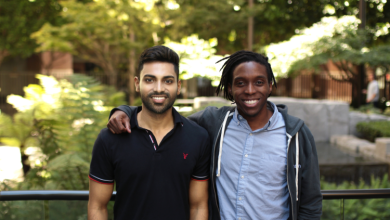Student Loan Forgiveness Under IBR Suspended — Here’s What Borrowers Need To Know


In the latest twist to the nation’s student debt crisis, the U.S. Department of Education has quietly suspended student loan forgiveness under the Income-Based Repayment (IBR) plan, Forbes reports.
According to the outlet, the department confirmed earlier this month that it paused processing student loan discharges for IBR borrowers. This includes those who’ve already reached their 20- or 25-year forgiveness milestone.
IBR Is Not Part of the Court Battle — So Why the Pause?
IBR forgiveness is not affected by the current lawsuits challenging other federal student loan programs, though it does — like them — determine a borrower’s monthly payment based on that person’s income and family size.
According to Forbes, last year, several Republican-led states sued the Biden administration to block the Saving on a Valuable Education (SAVE) plan, a newer income-driven repayment option. Federal courts responded by halting SAVE and forgiveness under two older plans, Income-Contingent Repayment (ICR) and Pay As You Earn (PAYE), the department announced earlier this year.
But IBR is different. Congress created the IBR plan in 2007 and authorized student loan forgiveness if the loan is not paid off after the required number of years — 25 years for those who started their loans before July 1, 2014, and 20 years for those whose loans were taken out after that time. Federal courts have recognized that distinction. So far, no court has ordered the department to pause IBR forgiveness, Forbes reports.
Still, the department suspended discharges under IBR anyway, pointing to the need to update internal systems due to the SAVE-related court rulings. Officials haven’t provided a timeline for when the pause will end, but, per Forbes, they stated that IBR forgiveness will resume once updates are completed.
Borrowers Caught In The Backlog
The IBR pause adds to a growing list of federal student loan system disruptions. More than 1.5 million income-driven repayment applications are stuck in a processing backlog, according to Forbes.
Meanwhile, the department urged another 8 million borrowers to switch from SAVE to IBR to remain in a “legally compliant repayment plan,” according to an official announcement cited by the outlet, even though IBR forgiveness is also suspended.
Borrower advocates are calling foul.
“Instead of fixing the broken student loan system, Secretary McMahon is choosing to drown millions of people in unnecessary interest charges and blaming unrelated court cases for her own mismanagement,” said Mike Pierce, executive director of the Student Borrower Protection Center, per Forbes.
These concerns echo warnings AFROTECH™ previously reported on, which argued that the department’s delays and decisions could financially devastate borrowers.
What Borrowers Can Do Now
If you’ve reached the forgiveness milestone under IBR, according to Forbes, you have two main options:
- Keep making payments under IBR and request a refund later for any extra payments beyond the required 20-year or 25-year term.
- Ask your servicer for a forbearance to pause payments while you wait for the system to process forgiveness eligibility. But interest will likely continue to accrue.
Either way, stay in close contact with your loan servicer and keep detailed records of your payment history.
Big Changes Are Coming
Adding to the uncertainty, President Trump’s “Big, Beautiful Bill” was recently signed into law. According to Forbes, the bill will phase out other income-driven plans like SAVE, ICR, and PAYE, and create a new option called the Repayment Assistance Plan (RAP).
RAP will require 30 years of payments before offering forgiveness. However, current borrowers will be allowed to stay in the IBR plan, at least for now.




